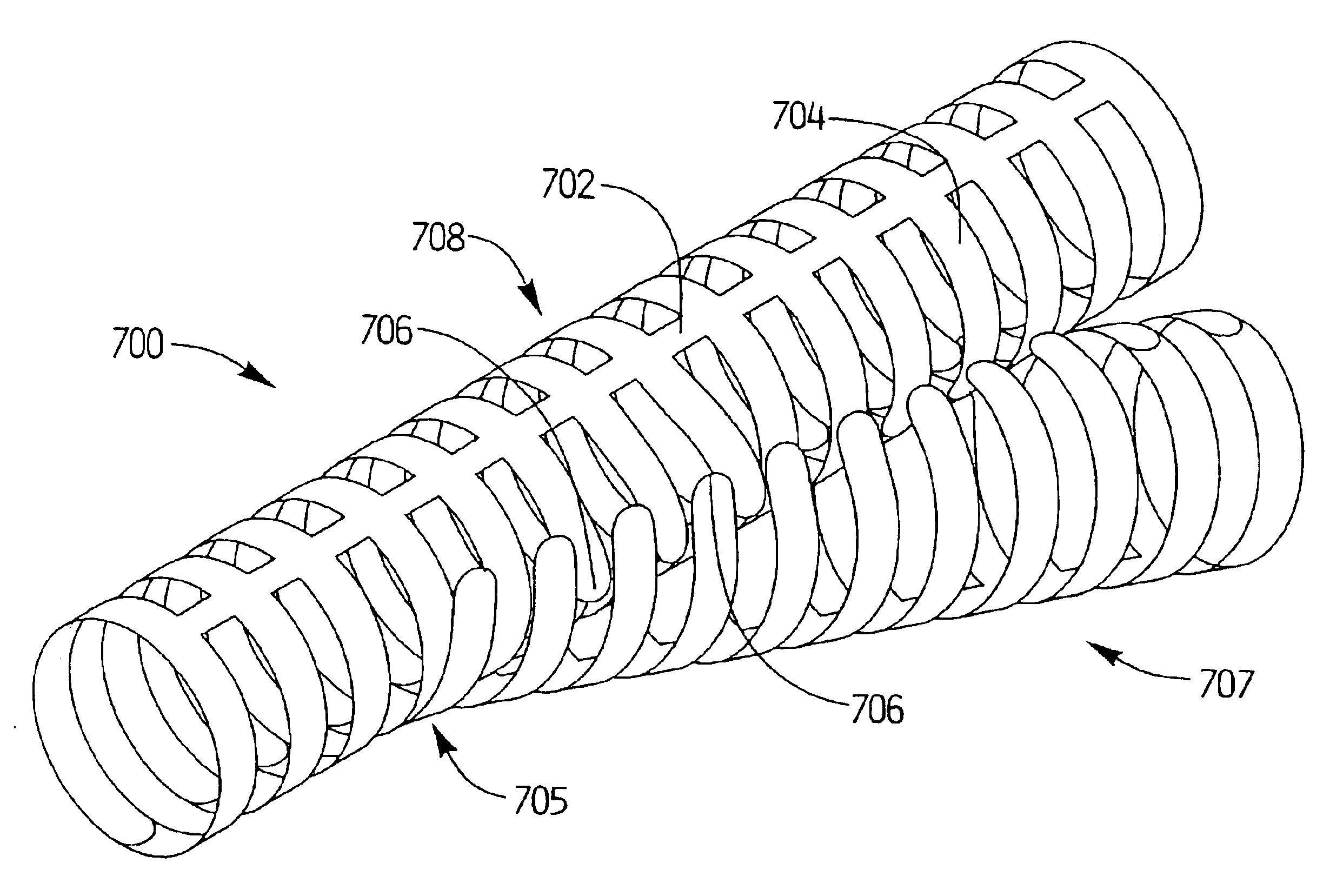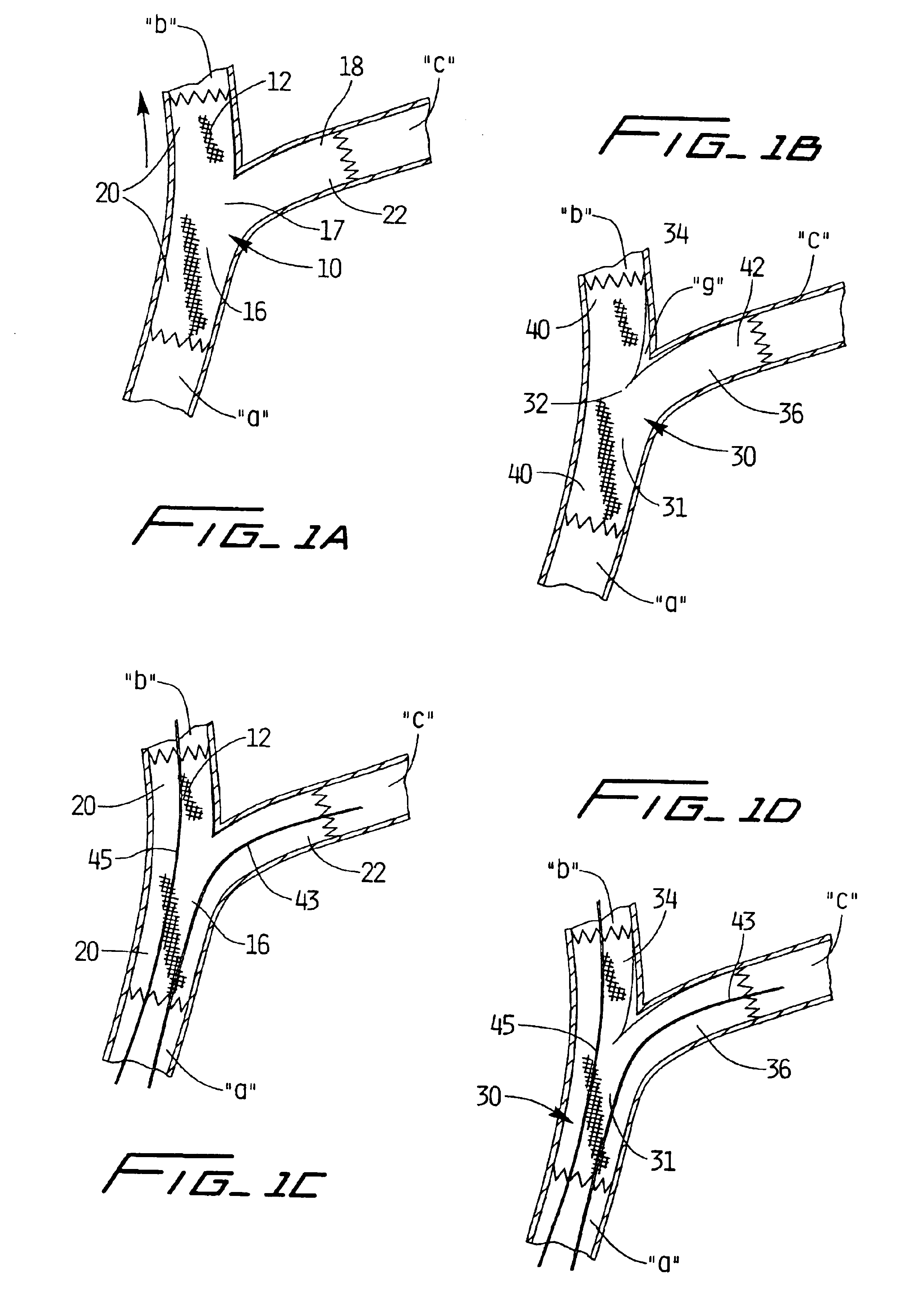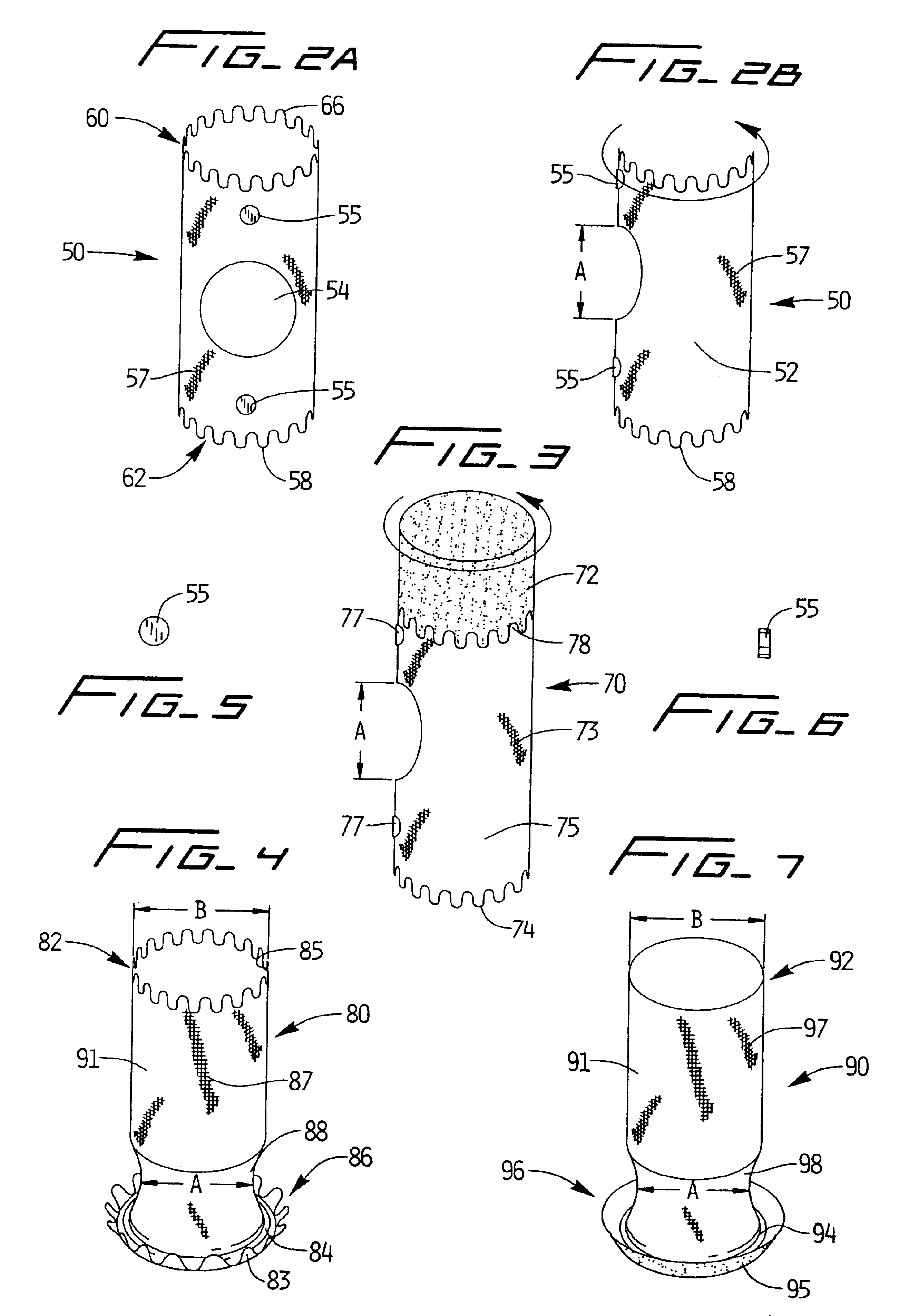Covered stent with side branch
- Summary
- Abstract
- Description
- Claims
- Application Information
AI Technical Summary
Benefits of technology
Problems solved by technology
Method used
Image
Examples
Embodiment Construction
[0061]Referring now in detail to the drawings wherein like reference numerals identify similar or like components throughout the several views, several embodiments of covered stents are illustrated to accommodate a branch of a target vessel. The covered stent includes a side branch, which can be either integral as shown in FIGS. 1A and 1B or a separate “branch” stent attached to a “main” stent as shown in FIGS. 2-4 and 7. The side branch extends into a vessel branching from the target vessel. The stent functions to expand the constricted passage, i.e. the stenosis, created by plaque buildup inside the vessel wall. A graft, composed of material such as PTFE or other known materials, is positioned over the stent (referred to as a “covered stent”), as shown in FIGS. 13A and 13B, so when the stent is expanded the graft is pushed against and retained against the inside vessel wall, thereby compressing the plaque, which might otherwise become dislodged, between the graft and the vessel wa...
PUM
 Login to View More
Login to View More Abstract
Description
Claims
Application Information
 Login to View More
Login to View More - R&D
- Intellectual Property
- Life Sciences
- Materials
- Tech Scout
- Unparalleled Data Quality
- Higher Quality Content
- 60% Fewer Hallucinations
Browse by: Latest US Patents, China's latest patents, Technical Efficacy Thesaurus, Application Domain, Technology Topic, Popular Technical Reports.
© 2025 PatSnap. All rights reserved.Legal|Privacy policy|Modern Slavery Act Transparency Statement|Sitemap|About US| Contact US: help@patsnap.com



